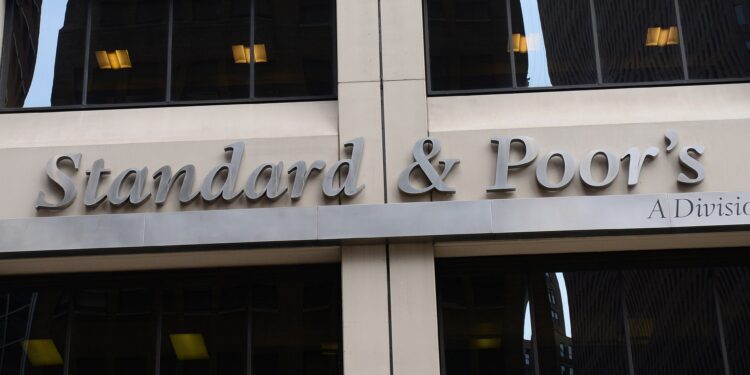The Standard & Poor’s credit rating agency announced on Thursday that it had raised its outlook for Turkey’s credit rating from stable to positive.
The agency stated in a statement that it affirmed Turkey’s credit rating at “B”, while emphasizing the decline in the double deficit.
Standard & Poor’s said that the adjustment comes in light of recent policy changes, including the central bank raising the key interest rate last week to 40%, in addition to “the current account surplus recorded in September, and the recovery of usable reserves during the first 17 days of the month.” November.
The “B” rating is 5 notches below investment grade. A positive outlook means the rating could be improved but is not tied to a timetable.
The total reserve of the Turkish Central Bank rose by $2.25 billion last November, reaching $136.5 billion, the highest level ever.
According to data from the Turkish Central Bank, the bank’s total foreign exchange reserves increased by $1.771 billion in the aforementioned period, reaching about $91 billion.
As for the total gold reserves, they increased by $225 million to reach about $45.5 billion, according to what Anadolu Agency reported.
Economy growth
The Standard & Poor’s statement expected the Turkish economy to grow by 3.7% this year, and 2.4% in 2024.
Turkish Trade Minister Omer Polat announced that his country has become the fastest growing economy among the G20 and OECD countries during the third quarter of this year. For his part, Turkish Finance Minister Mehmet Simsek warned that this growth will slow in the coming period.
The Turkish economy achieved growth of 5.9% in the third quarter of 2023, according to official data issued Thursday by the Turkish Statistics Authority, which exceeded expectations, driven by household spending, but activity is expected to slow by the end of the year after monetary tightening led to calming demand.



